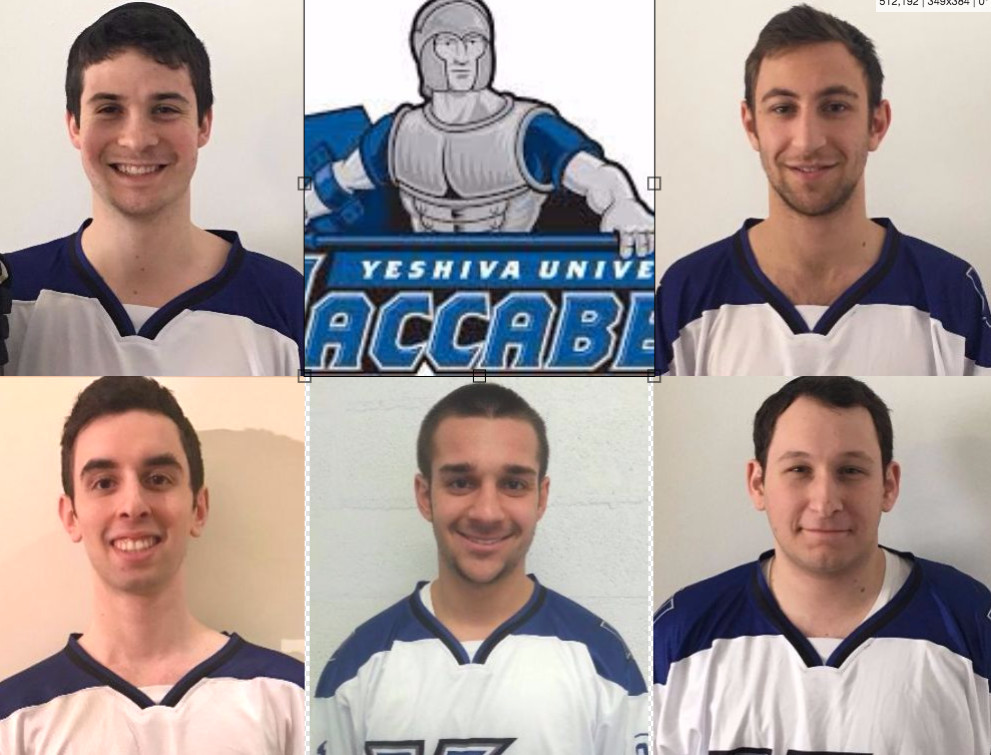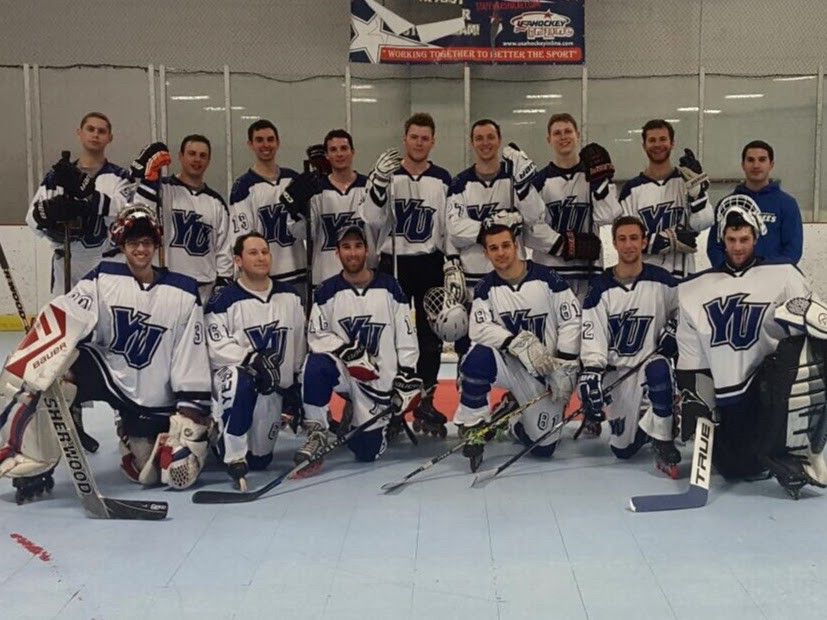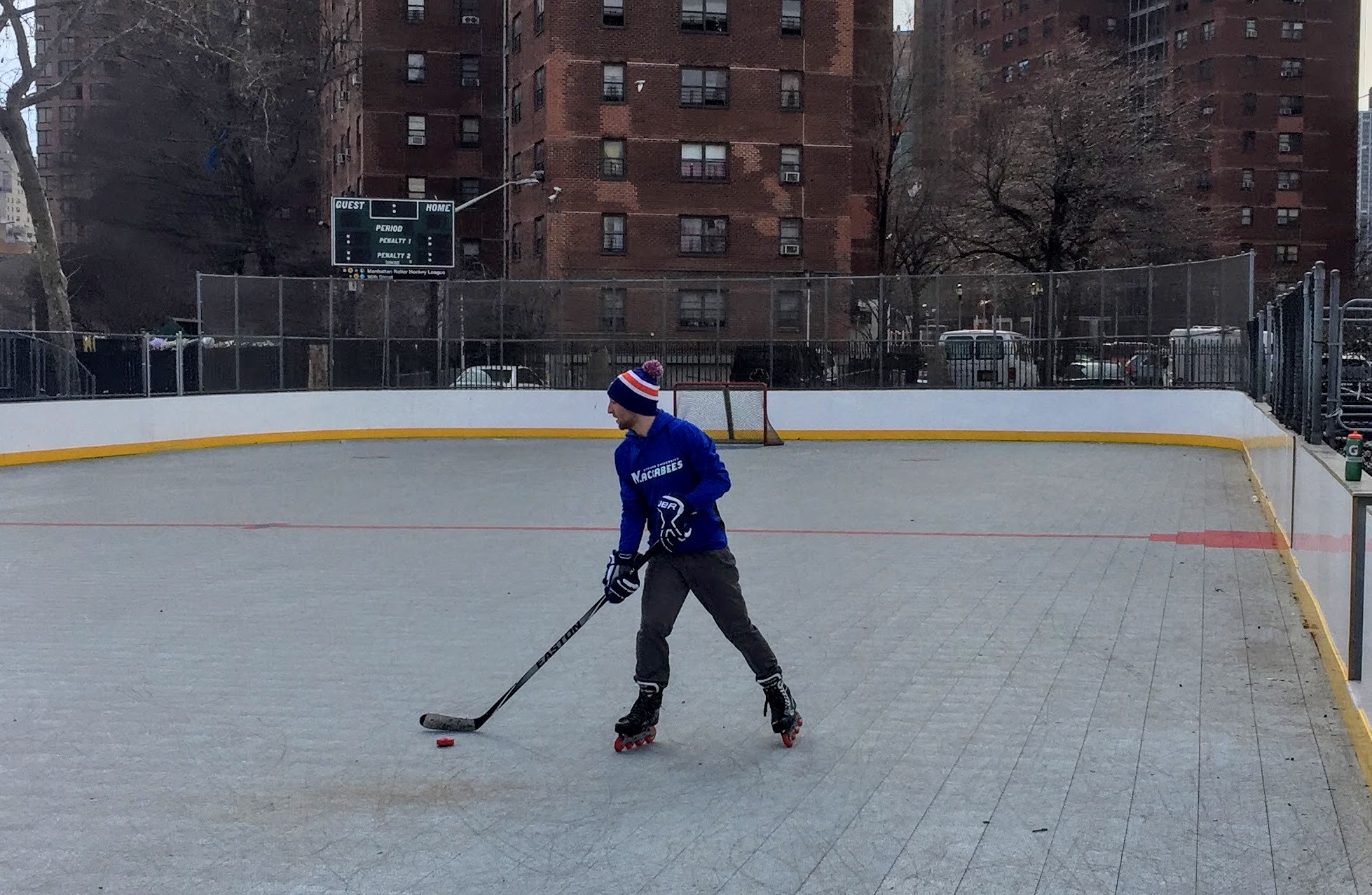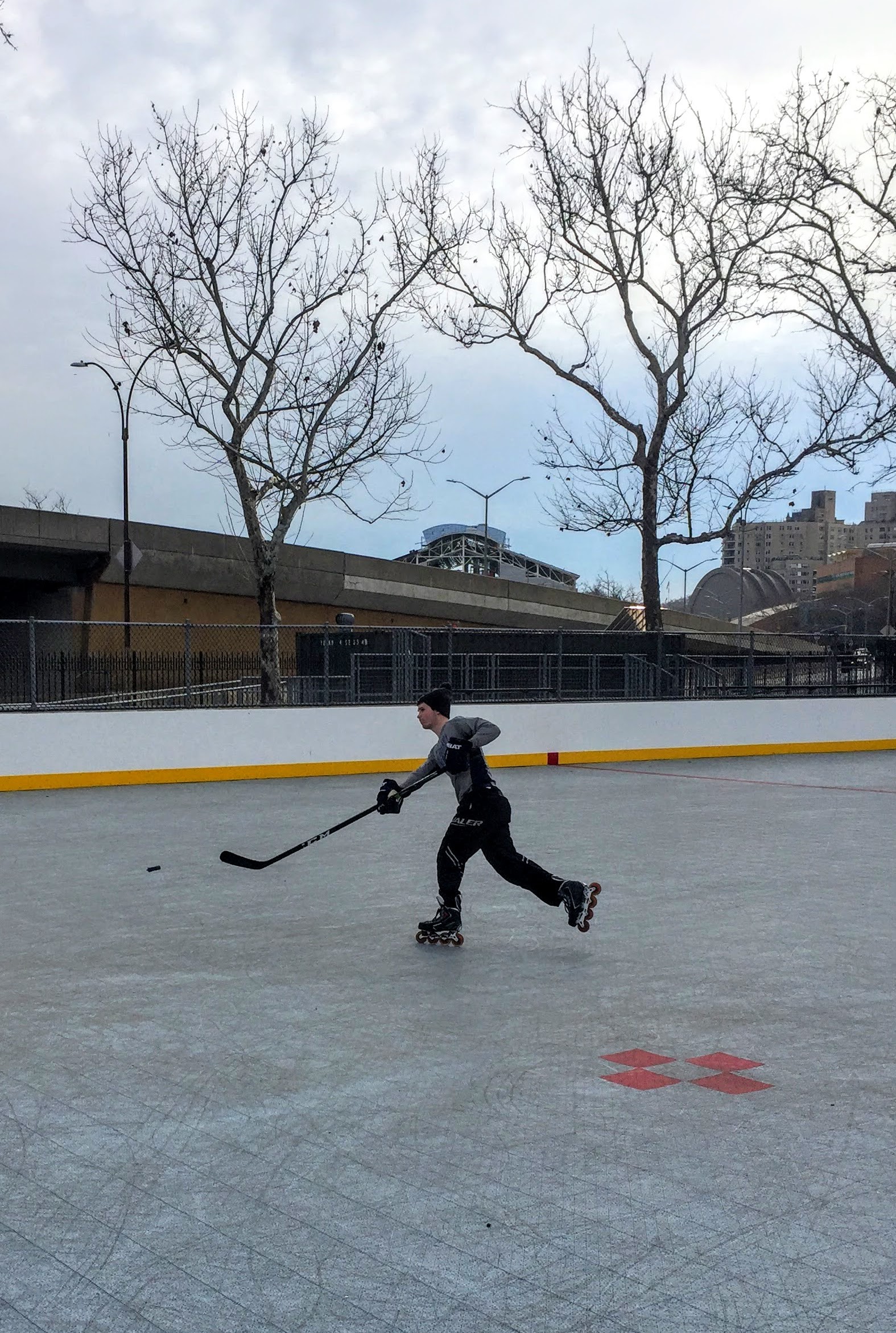Thursday, April 25, 2024
 55.0°,
Overcast
55.0°,
Overcast
Division II hockey, born in West Hempstead
The Maccabees are the only all-Jewish team in their collegiate roller hockey league.
The streets of West Hempstead seem like an unlikely birthplace of a sports team that was in first place in the National Collegiate Roller Hockey Association’s Division II last week. But it was just part of growing up for Jesse Gordon, Avi Marguiles and Moshe Genuth — West Hempstead residents who attend Yeshiva University and play on its squad, the Maccabees — the only all-Jewish team in their collegiate roller hockey league.
At age 5 or 6, the boys took up the sport at the West Hempstead Police Athletic League rink on Hempstead Avenue, where they learned the basics. Inspired to keep playing outside the PAL, they assembled at other times on Berry Court, a dead-end street, and played pick-up games. “We used to organize people every Friday and Sunday,” said Gordon, 22, who is graduating in May and studying for the actuarial exam. “We’d have at least 10 to 15 guys come out.”
Although they didn’t know it at the time, something amazing was happening. Their love of roller hockey, and their deep devotion to their Hebrew studies, was leading them down the same path: They all attended the Davis Renov Shahler High School for Boys in Woodmere, and kept similar schedules so they could play roller and field hockey during their downtime.
Meanwhile, in the Five Towns, Mendy Duftler, of Cedarhurst, and Michael Fruchter, of Lawrence, were following a similar track — attending different high schools, but playing on the same hockey league as the boys from West Hempstead. “I knew them from around town,” Duflter said. “We were always competing against each another on different teams.”
All five boys went to Yeshiva University, and eventually found one other. In 2015 they established the Maccabees at the school, which is known more for its academics and religious studies than its competitive sports teams.
During the first year, they started as a National Collegiate Roller Hockey Association Division IV team, and found they easily won games against others in the division. They were soon invited to join the more competitive Division II.
This season, the team is favored to win the playoffs. “So many of us played together for so many years that we have a chemistry that doesn’t exist in other schools, because the students are from different places,” said Avi, the team’s co-founder.
That closeness gets the team through challenges other collegiate teams never face. As a squad of Orthodox Jews, they cannot play on Saturdays because it’s the Sabbath, which means they play multiple games back to back, on Sundays against other teams that haven’t endured that level of physical exertion. “It sounds crazy because it is crazy,” said Avi. “When you sit on the bench before the third game, you’re drained, but you forget about the fact that you woke up at 5 a.m. You forget that you just played two games. This is how it’s done because of the situation we’re in. We do whatever we have to do to play hockey.” The league, Gordon said, has been extremely accommodating to the team in arranging for its games to be played exclusively on Sundays.
Because the team isn’t college-sanctioned — it is considered a club at the university — it does not receive school funding and covers its own expenses. Before a Sunday game, team members drive their own cars to a hotel near the game site, putting four guys in each car and hotel room and dividing the room and gas tabs. They also have to pay for their own equipment — jerseys, helmets, skates, sticks, pucks and more — and plan in advance to ensure they have kosher meals.
Practice is complicated for the team since there aren’t any rinks near the Washington Heights-based university. “North Arlington, N.J., has the closest rink,” said Gordon. “We signed up for a recreational league there and play in that league. Sometimes we organize practices nearby at the high school gym around the corner.” The team practices, on average, twice a week, according to Gordon.
Elyashiv Gemara, who is an alumnus and volunteers his coaching time to the Maccabees, said that the team’s accountability for its finances is part of what makes it successful. “The guys feel that they’re responsible for the team, and they do it with little support,” said Gemara. “They want to show that this team is the real thing, and I think it’s helped contribute to our success overall.”
Also unique to the team are its sunrise and sunset prayers. “One of the first things that always comes up in the locker room is, ‘What time are we praying tomorrow morning?’” Gemara said. “It’s very special to see that.” The Orthodox Jewish faith dictates that prayers must be said after the sun rises, but in the winter, many of the team’s games are at 7 a.m. and the sun sometimes doesn’t rise until 7:30. “In that case, we’ll probably pray after the first game, but if the sun rises really early, we’ll pray in our hotel before we leave,” Gemara said.
All of the challenges contribute to the team’s endurance and fortitude. “We’re not just here to play hockey, graduate and move on,” said Marguiles. “We’re trying to pave the way for future students who can’t play on Sabbath, or any other situation that they feel is holding them back. We’re trying to set a precedent here. We want it to become the norm.”
HELP SUPPORT LOCAL JOURNALISM
The worldwide pandemic has threatened many of the businesses you rely on every day, but don’t let it take away your source for local news. Now more than ever, we need your help to ensure nothing but the best in hyperlocal community journalism comes straight to you. Consider supporting the Herald with a small donation. It can be a one-time, or a monthly contribution, to help ensure we’re here through this crisis. To donate or for more information, click here.
Sponsored content
Other items that may interest you













